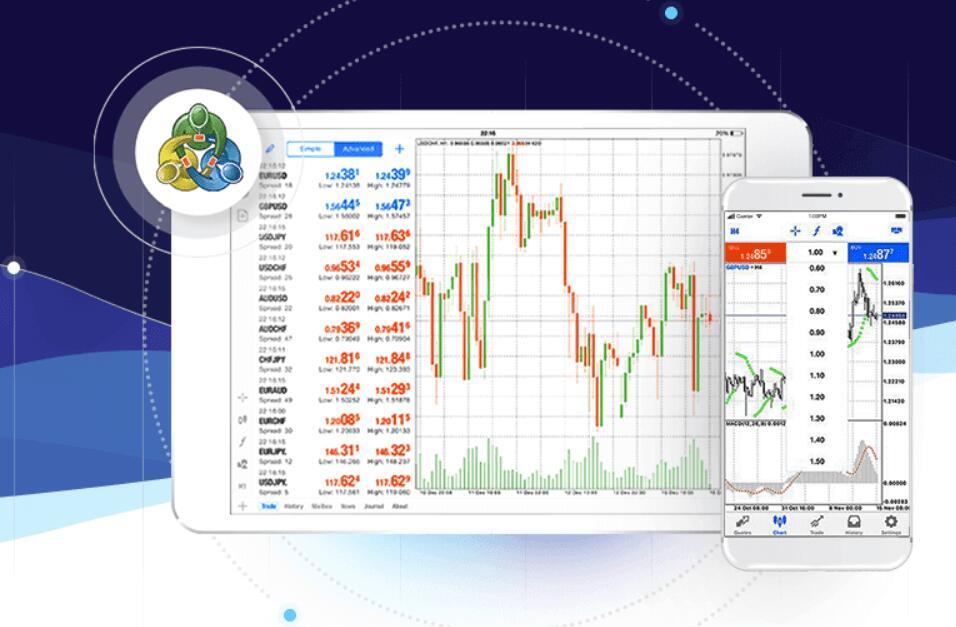
By means of trading on equity, as mentioned before, companies expect to increase their income by acquiring new assets, and subsequently generating returns that are higher than the debt they procure. Thereby, that excess income increases shareholder’s earnings per share (EPS). It’s an indication that the strategy carried out by a corporation was fruitful. Trading on equity, which is also referred to as financial leverage, occurs when a corporation uses bonds, other debt, and preferred stock to increase its earnings on its common stock. Most large companies have stocks that are listed on multiple stock exchanges throughout the world. However, companies with stocks in the equity market range from large-scale to small, and traders range from big companies to individual investors.

Sharekhan Comtrade Private Limited uses contact data from its contests to send users information about Sharekhan Comtrade Private Ltd. and promotional material from some of our partners. Sharekhan Comtrade Private Limited does, however, gather certain information that is provided by you to the Web Site. Buy a piece of ownership in a pooled investment, limited partnership, or master limited partnership interest. Have you ever wondered why a stock will continue higher, even though the indicators are all rolling over? We have the price breaking the 20-period SMA and a bullish MACD crossover. Notice how you can see the number of shares purchased and the total gain make on the position.
The interest paid on borrowed money is an unavoidable expense for the organization. For example, if company X’s equity capital amounts to Rs.300 crores whereas the debt capital amounts to Rs.50 crores, company X is said to be trading on thick equity. For example, if company X’s equity capital amounts to Rs.100 crores whereas the debt capital amounts to Rs.300 crores, company X is said to be trading on thin equity. In trading on thin equity, the borrowed amount is significantly close to the company’s equity because the company’s capital is lower than the debt capital. Able Company uses $1,000,000 of its own cash to buy a factory, which generates $150,000 of annual profits. The company is not using financial leverage at all, since it incurred no debt to buy the factory.
Trading on Equity Example:
Since you are looking for day trading equipment, I assume you are fully aware of the server farms used by the… You, my friend, can place hundreds or thousands of trades just like this in order to hone your skills prior to investing in the market. The playback controls are very similar to what you might see in YouTube or your home DVR. This allows you to take your back testing to a more granular level not present in other trading platforms. Test a number of indicators to figure out how which one suits your trading needs the best. You will want to pick indicators that help validate signals but serve different functions.
- As a rule, companies are provided with the most favorable terms to make the most of their equity.
- Most buyers and sellers tend to prefer trading at larger exchanges, where there are more options and opportunities than at smaller exchanges.
- If a company is breaking even or under a slight loss, opting for the trading on equity strategy can end up deepening its losses.
- There were huge blackboards with people sliding up and down the ladder updating prices with chalk.
Equity traders do research and analysis to determine when to buy or sell shares of a company on the equities market. Duties as an equity trader also may include trading options, futures, and exchanging debt funds and other derivatives. You will need to show a high level of analytical skills, math skills, and detail-oriented skills. You can trade on equities via spread bets and CFDs on our award-winning trading platform, Next Generation.
Equity trading
Company ABC uses ₹10,00,000 of its own money to buy a factory, which generates ₹2,50,000 of annual profits. There is no financial leverage involved here since the company incurred no debt to buy the factory. With trading on equity, firms can provide higher ROI to their equity shareholders. This plays a vital role in improving company goodwill in the eyes of investors. Interest expenses on funds borrowed by a company are tax-deductible.
Blair William & Co. IL Shows Confidence in agilon health with … – Best Stocks
Blair William & Co. IL Shows Confidence in agilon health with ….
Posted: Wed, 06 Sep 2023 12:12:23 GMT [source]
Turbulent emotions could become a liability if they lead to rash decisions, especially during periods of high volatility. Market sentiment and demand for shares can increase the price of stocks. The more demand there is for a stock, the higher its price will be.
Will Equity Trading Get Automated or Displaced?
Trading on equity occurs when a company incurs new debt (such as from bonds, loans, or preferred stock) to acquire assets on which it can earn a return greater than the interest cost of the debt. If a company generates a profit through this financing technique, its shareholders earn a greater return on their investments. If the company earns less from the acquired assets than the cost of the debt, its shareholders instead earn a reduced return. Many companies use trading on equity rather than acquiring more equity capital, in an attempt to improve their earnings per share. In case, a company bags more ROI than the cost of debt, it means higher returns for equity shareholders.
- The stock market allows individuals to take ownership of portions of companies.
- By means of the degree of financial leverage, one can comprehend how EPS shall fluctuate with respect to change in EBIT.
- You can also use information and strategies from other traders that you observe online.
- Begin with predefined, expert screening strategies that you can fine-tune and save.
Before making any investment decisions, you should seek advice from independent financial advisors to ensure you understand the risks. XYZ Inc. raised a Debt of $200,000 on Equity capital of $3,000,000. With a Net Income of $50,000 and the Cost of Debt as 3%, calculate the shareholder’s rate of return.
Trading on Equity
If the borrowed amount is high, the interest payouts alone can increase the company’s financial burden significantly. Furthermore, if there’s any unexpected rise in interest rates, the https://online-accounting.net/ company may have to pay additional interest on its loans. On the contrary, if the debt capital of a company is lower than its equity capital, it is said to be trading on thick equity.

Sales-Traders still pitch ideas to clients, but the ideas are geared toward short-term execution instead of longer-term strategies. You can learn more about sales in this article on an equity sales internship and this one on an equity derivatives sales internship. So, even flexible budget if you lose money on the buying and selling, you might still complete this trade if the commissions and fees offset the loss. So, as a trader, you must divide this task into smaller pieces and buy portions from different parties over time to profit from the trade.
Taking ownership of that asset entitles investors to a share of any profits made by that company. Also known as financial leverage, trading on equity is a strategy that involves taking on debt to enhance the profits of the company and ultimately the returns to shareholders. Also known as financial leverage, trading on equity is a process where a company issues certain types of debt using instruments such as convertible notes, debentures, and long-term loans. Then, the company uses this debt to invest in assets that generate returns larger than the interest on the debt. Dividend or interest payments on preferred securities may be variable, be suspended or deferred by the issuer at any time, and missed or deferred payments may not be paid at a future date. If payments are suspended or deferred by the issuer, the deferred income may still be taxable.
Trading on equity is a strategy that companies use to expand their business and reward their shareholders. With this strategy, firms can generate more ROI along with attracting more investors for a longer tenure. It is also important to note that trading on equity may benefit company shareholders, but it can also result in huge losses as well, if leverage is not managed properly. If a company opts for a higher amount of debt, then there will be a huge increase in the company’s debt payment obligations.
Ontario Teachers Pension Plan Board Lowers Holdings in Knight … – MarketBeat
Ontario Teachers Pension Plan Board Lowers Holdings in Knight ….
Posted: Wed, 06 Sep 2023 14:26:15 GMT [source]
Trading on equity is a financial process in which debt produces gain for shareholders of a company. Trading on equity happens when a company incurs new debt using bonds, loans, bonds or preferred stock. The company then uses these funds to gain assets which will create returns which are larger than the interest of the new debt. If it helps the company to generate profit and results in a higher return for the shareholders on their investment, it is considered a success.
Measuring the Effects of Trading on Equity
A firm does this in the hope of making additional returns that are higher than the cost of the debt capital. While it is the primary objective, the company has other strategic goals. Firms implement this with the hope of generating some additional returns.
